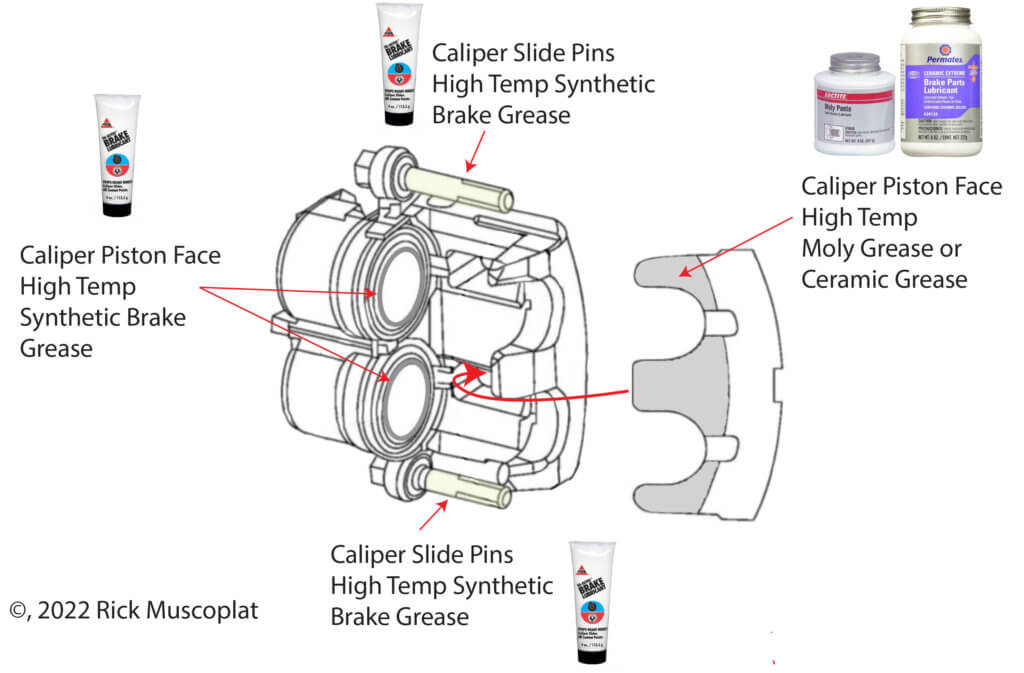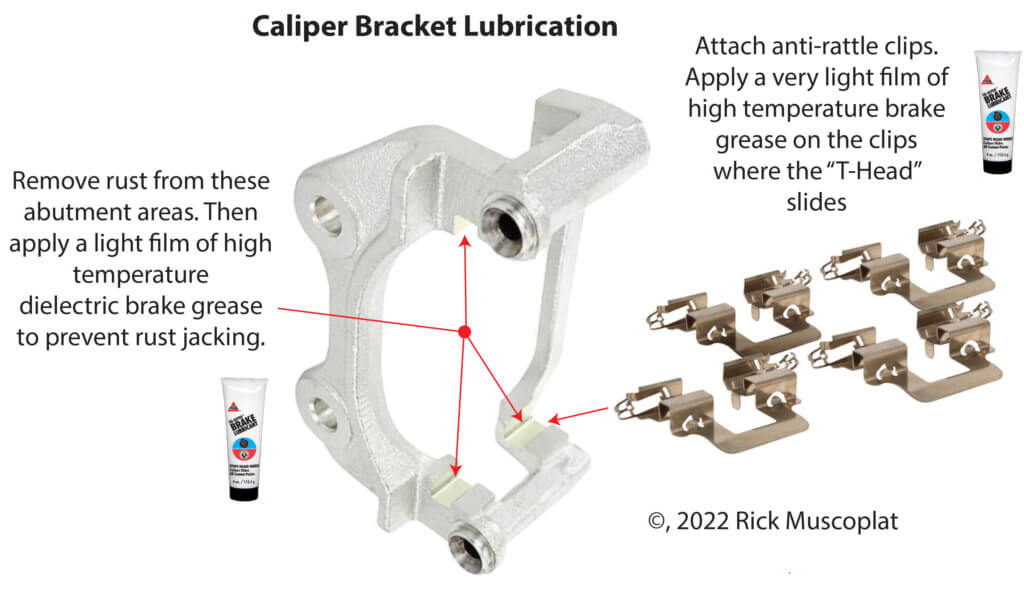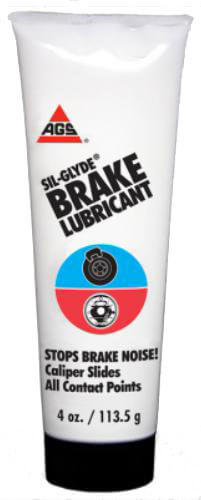Where to apply brake grease
How to Apply Brake Grease: A Step-by-Step Guide
Many DIYers don’t know where to apply brake grease or even why it’s so critical. Applying brake grease accomplishes two things: 1) It helps sliding parts slide, and 2) It reduces brake noise.
Where to apply brake grease
Apply brake grease to the caliper
• Caliper piston face to dampen vibrations between the backing plate or shim and the piston
• Opposing caliper body (“fingers”) to dampen vibrations between the backing plate and the fingers

Where to apply it to the caliper bracket (abutment)

Where to apply grease on brake pads
If the noise reduction shims aren’t permanently attached to the backing plate, apply a light coating of grease to the backing plate before attaching the noise reduction shim.

Brake grease reduces brake noise
All brake pads produce vibration when they applied. Without lubrication, the vibrations travel through the friction material, to the steel brake pad backing plate, the caliper and then to the steering knuckle, strut and spring. The caliper knuckle, strut and spring amplify the vibrations and that’s what causes brake squeal, screech and sometimes grinding noise. Brake grease lubricates the backing plate-to-caliper piston and the backing plate-to-the-caliper fingers. That reduces the metal-to-metal vibration transfer and also dampens the vibrations.
What type of grease should you use

Use high temperature silicone (dielectric) brake grease. It resists breakdown under high temperatures and reduces corrosion. NEVER use a petroleum based grease on caliper slide pins! It will degrade the rubber caliper pin boots.
NEVER use anti-seize on caliper slide pins. Anti-seize is not designed to lubricate sliding parts. It’s sole purpose is to prevent parts from seizing.
Grease for brake pad backing plates, noise reduction shims, and caliper piston face
Use a high temperature synthetic/ceramic or molybdenum grease on the caliper areas shown below and on the caliper piston face. Both grease types reduce brake noise caused by normal braking vibration. Do not use a petroleum based grease on or near rubber seals.
©, 2022 Rick Muscoplat
Posted on by Rick Muscoplat